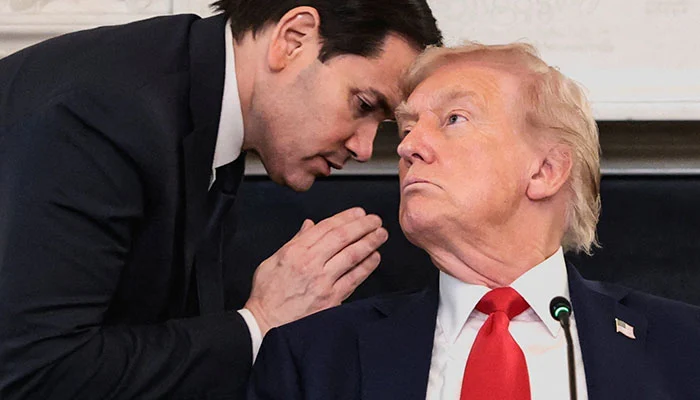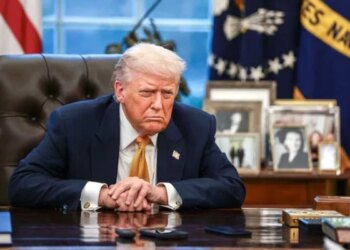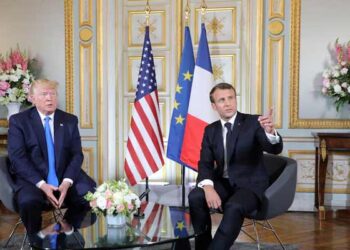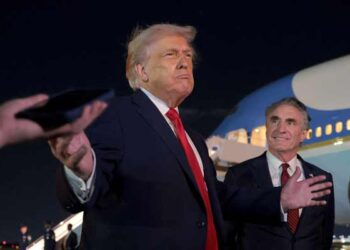Select Language:
A typical dramatic scene unfolded at the White House as Donald Trump’s top diplomat interrupted a televised meeting to slip a note into the President’s hand, whispering that a deal in Gaza was close. Moments later, Trump announced via his Truth Social platform, “Blessed are the peacemakers!” While the public spectacle played out, most of Trump’s efforts occurred behind the scenes, pressing Israeli Prime Minister Benjamin Netanyahu and rallying Arab nations to support the agreement.
In efforts to secure a Nobel Peace Prize and boost his legacy, Trump adopted a different approach with Israel compared to past administrations. During a September 29 White House visit, Trump publicly expressed full support for Netanyahu, warning that if Hamas rejected the peace plan, Israel would have his backing to eliminate the militant group. Privately, however, he was applying pressure. The peace plan presented to Netanyahu had been prepared after extensive talks with Arab and Muslim countries at the UN the week prior. Netanyahu quickly realized there were crucial elements in the plan he couldn’t accept, particularly regarding his stance against establishing a Palestinian state.
Trump was also frustrated by Israel’s missile strike on Hamas operatives in Qatar, an ally of the U.S., amid sensitive negotiations. To unify Arab backing, Trump exploited regional solidarity, compelling Netanyahu to call Qatar’s leader from the Oval Office to apologize. A White House photo showed Trump holding the phone for Netanyahu during the call. Reports indicated a senior Qatari official was in the room to ensure Netanyahu adhered to the narrative. Later, Trump authorized a unique security arrangement with Qatar.
This pivot reflected the close ties Trump fostered with Gulf countries. During his first term, the UAE, Bahrain, and Morocco signed the Abraham Accords, normalizing relations with Israel. His first trip to the Middle East in this term was exclusively to Qatar, Egypt, and Abu Dhabi, bypassing Israel altogether.
Trump accelerated pressure on Hamas, giving them a deadline of October 5 to strike a deal or face severe consequences. Hamas responded cleverly, leveraging Trump’s well-known commitment to secure the release of Gaza hostages, a cause he repeatedly championed with White House visits. Trump declared victory, posting a video and re-sharing Hamas’s statement—an unusual move for a U.S. president—despite Hamas not fully agreeing to his entire peace plan. Instead of focusing on details, Trump urged Israel, Hamas, and mediators to expedite negotiations.
He told Axios that he told Netanyahu, “This is your chance for victory,” implying Netanyahu had no choice but to accept the opportunity he presented.






